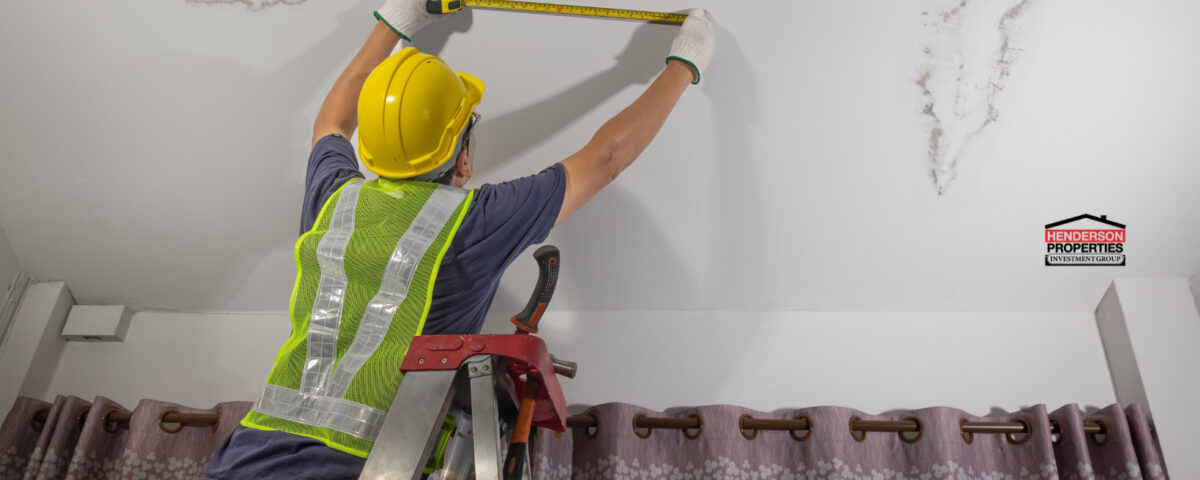- Walk-in Traffic is by Appointment Only - More Details
5 Common Charlotte Rental Repairs That Could’ve Been Prevented

Charlotte Landlord’s Guide to Depreciation, Deductions, and 1031 Exchanges
July 4, 2025
The Best House-Hunting Websites for Charlotte Real Estate
July 16, 2025Don’t Let These Rental Problems Sink Your Profits
Owning rental property in Charlotte can be a rewarding and exciting venture, whether you’re building long-term wealth, generating passive income, or expanding your real estate portfolio. But along with the benefits come the challenges, especially when it comes to maintenance. Charlotte’s mix of historic homes, rapid development, and unpredictable weather means property upkeep is rarely foreseeable.
Staying ahead of maintenance issues allows you to address small problems early, thereby preventing costly emergencies. It keeps tenants happy and protects your property, protecting your investment. In a fast-growing city like Charlotte, knowing local maintenance needs is important to staying proactive.
Here’s a look at the most common maintenance headaches Charlotte landlords face and what you can do to keep them from getting worse.
1. HVAC on the Brink
If there’s one system tenants can’t live without, it’s air conditioning. And in Charlotte’s humid summers, your HVAC is on the front lines every single day.
Air conditioners that haven’t been serviced properly tend to break down when you need them most, right in the middle of a July heat wave. Condensation lines clog, refrigerant runs low, coils freeze, and before you know it, you’ve got water dripping from the ceiling and angry tenants calling at midnight.
Prevention Tip: Replace filters every 60–90 days. Have a professional HVAC inspection in the spring and fall. If the system is over 10 years old, start planning for replacement before it fails. A well-maintained system lasts longer and uses less energy.
2. Freeze, Crack, Flood
Charlotte winters are usually tame, but every few years we get hit with a sudden hard freeze. That’s when pipes burst in attics, crawlspaces, and basements, especially in older homes without proper insulation.
It doesn’t take much. Just a few hours of 25-degree temps can freeze standing water in a pipe. The result? Cracked copper or PEX, water pouring into drywall, and weeks of repairs.
Prevention Tip: Insulate vulnerable pipes. Shut off and drain outdoor spigots before the first freeze. If your property has a crawl space, consider installing a freeze alarm or a temperature monitor to protect against potential damage. And remind tenants to leave the heat on, even if they are leaving for the holidays.
3. Pest Parade
Insects love Charlotte as much as the rest of us. Palmetto bugs, ants, spiders, and mosquitoes are a fact of life, especially in spring and summer. And once temperatures drop, mice and squirrels start seeking shelter indoors.
For landlords, pest issues can damage your property and your reputation. If residents start seeing bugs regularly, they’ll either move out or request service every other week.
Prevention Tip: Keep gutters clean, seal gaps around windows and doors, and trim tree limbs back from the roofline. Schedule quarterly pest control, especially if the home is older or near wooded areas. Don’t wait until residents complain; get ahead of the season.
4. Gutters, Roofs, and Hidden Leaks
Charlotte’s storms are no joke. High winds, heavy rain, and falling branches can do a number on shingles and siding. However, the damage isn’t always immediately apparent. A slow roof leak may not be noticeable until the ceiling starts to stain or, worse, collapse.
Gutters are often the real culprit. If they’re clogged, water backs up and can seep into fascia boards or behind siding. Over time, moisture can lead to rot, mold, and expensive repairs.
Prevention Tip: Clean gutters at least twice a year (or more frequently if there are overhanging trees). After major storms, take a walk around your property and gently check for any shingle damage, sagging gutters, or water pooling near the foundation. It’s also a good idea to schedule a roof inspection every 2–3 years, especially if your home is 15 years old or older. These simple steps can help keep your home in great shape and give you peace of mind.
5. Mold’s Favorite Playground
Humidity and mold go hand-in-hand. If your tenant forgets to run the bathroom fan, or if there’s a slow plumbing leak behind a wall, mold has everything it needs to grow quietly and quickly.
Charlotte’s climate poses a major risk, particularly in homes with basements or crawl spaces. Once mold sets in, it’s tough to eradicate without professional help.
Prevention Tip: Ensure bathrooms and kitchens have proper ventilation. Use mold-resistant paint in high-humidity areas. Check under sinks and behind appliances during inspections. If you smell a musty odor, don’t ignore it; track down the moisture source fast.
When to DIY and When to Delegate
If you’re a local landlord and like getting your hands dirty, some of these tasks are within reach. However, other HVAC work, roof repair, and mold remediation are best left to the pros.
That’s where our team comes in. We’ve been handling maintenance for Charlotte rentals for over 35 years. Our team handles everything from seasonal tune-ups to 24/7 emergency calls. We are familiar with the region, its risks, and how to maintain rental properties’ performance without incurring excessive costs.
What are you waiting for? Reach out for a free proposal to manage your property!






